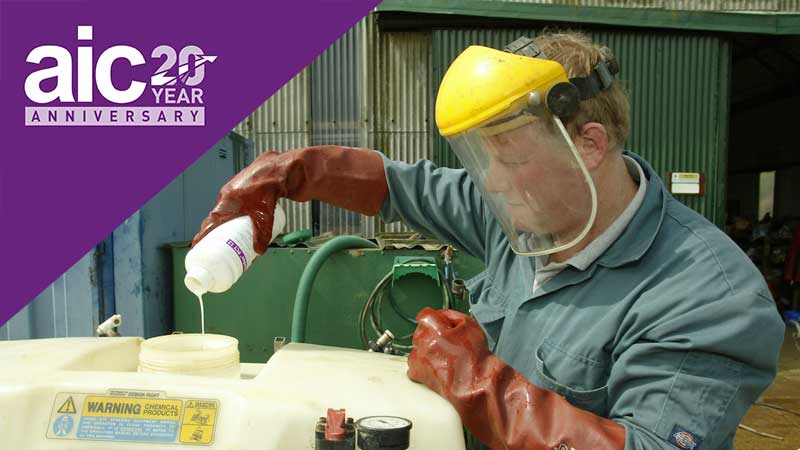AIC at 20: Tackling the sale and use of illegal plant protection products

As AIC marks 20 years as the UK agri-supply industry’s leading trade association, we're looking back at some of its greatest achievements since it was founded in 2003.
Each week throughout 2023, we’ll explore a major achievement where AIC represented its Member businesses, promoted the benefits of modern commercial agriculture in the UK, and supported collaboration throughout the food chain.
This week we review how AIC worked to raise awareness of the dangers of using illegal plant protection products (PPPs) over the past decade.
Growing threat
As much as 14% of the European Union (EU) pesticide market is impacted by the trade of illegal PPPs, according to recent estimates.
Illegal or conterfeit PPPs are unregulated, uncontrolled and pose risks to human health, the environment, and farmers' and distributors’ businesses, as there is no way of knowing what substances they contain.
EU law enforcement authorities under European crime agency Europol’s Silver Axe campaign carry out inspections at land and sea borders, inland marketplaces and parcel deliveries.
In 2022 thousands of tonnes of PPP were checked, with 1,150 tonnes of illegal pesticides being seized and 10 arrests made. Europol has warned that the trade of fake pesticides is on the rise across Europe.
United effort
While the trade of illegal PPPs in the UK is thought to be lower than EU levels, the industry maintains its vigilance to prevent them from gaining a foothold.
The work of AIC encompasses three guiding pillars - Productivity, Environment and Competitiveness - delivering for sustainability and contributing to the circular economy. Find out more here.
In response to rising concerns, AIC tackled the issue by holding a seminar in 2013 which was dedicated to raising awareness of this important issue with food chain stakeholders.
The information exchange day was held in collaboration with the Crop Protection Association (now CropLife UK) and the National Farmers Union (NFU).
It highlighted the consequences for all businesses that an increase in illegal PPP trading in the UK could pose, and was followed by the launch of the “Watch out!” campaign in 2014 which continued this work.
The campaign was supported by the Voluntary Initiative and Red Tractor Assurance.
Major risks
Illegal PPPs risk jeopardising AIC Member businesses if they unknowingly trade in these products, and farmer clients using illegal pesticides could face losses and damage claims from processors along the food supply chain.
These products are untested, uncontrolled and can contain inferior or even banned substances which may endanger the health of sprayer operators, see farmers loose their land management payments and farm assurance status, and result in crop failure or rejection.
They also pose serious environmental risks to wildlife, soil and watercourse, which is why trading or using such products can lead to criminal prosecution.
Ultimately, UK agriculture's competitiveness and the safety of food supply is at stake and regulatory control of PPPs risks being undermined.
AIC's concerted efforts to work with industry stakeholders and Member businesses to raise awareness of these risks means that the amount of illegal PPPs in the UK today continues to be low.
Useful advice on illegal pesticides
Farmers, operators and agronomists can be on their guard against illegal pesticides by:
- Only purchasing known and reputable pesticides from legitimate suppliers
- Checking that packaging is professional, tamper-proof and securely sealed and it has a full label written in English.
- Checking the product on the invoice and delivery note matches the product ordered and delivered
- Checking that the product looks as expected
- Reporting suspicious products and suppliers by calling a Government helpline on 03459 335577
Watch the video below to find out more about AIC and the crop protection and agronomy sector.
Make sure you're following AIC on Twitter and LinkedIn for regular updates.
Visit the AIC at 20 webpage for more content like this.

